All
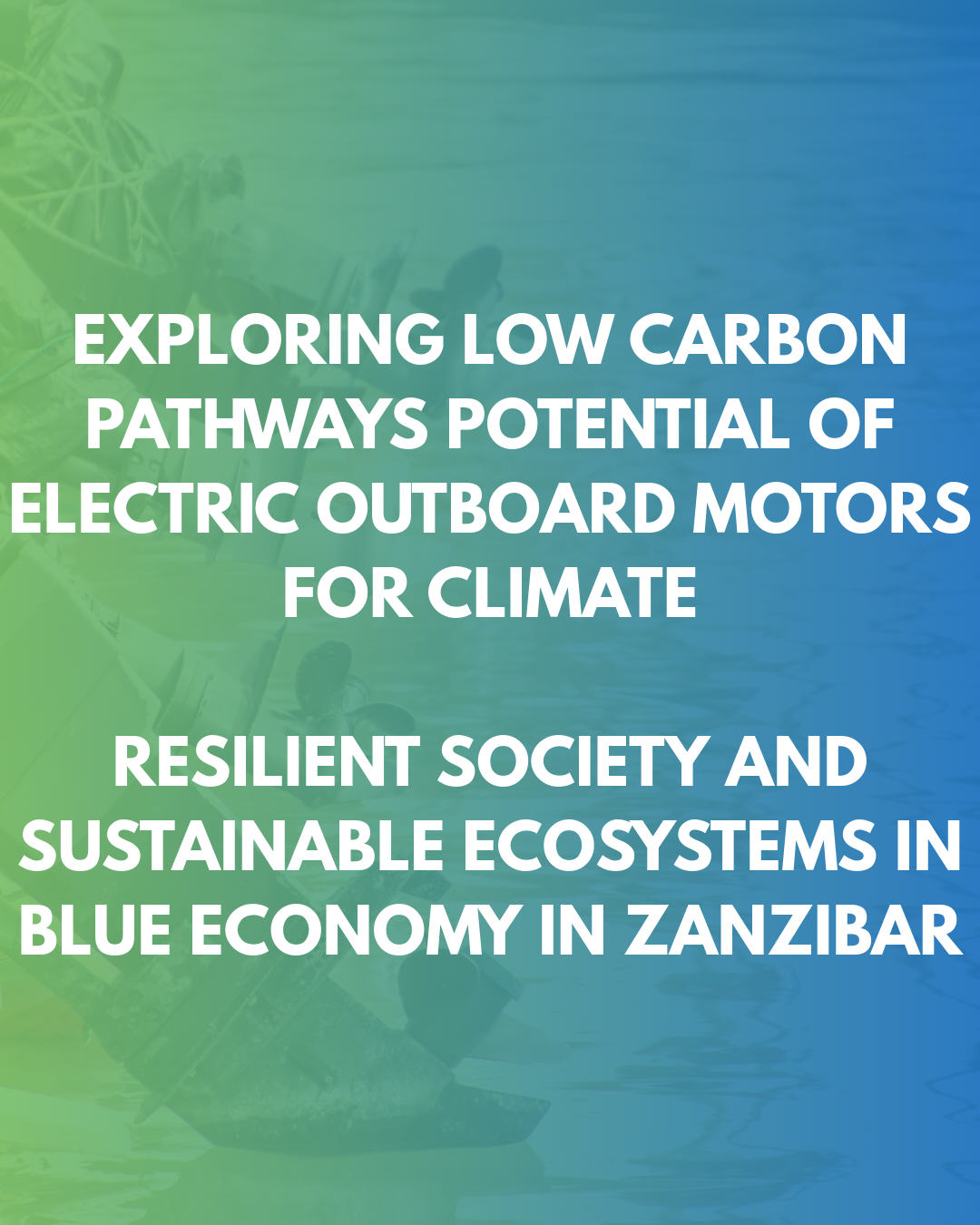
Exploring Low Carbon Pathways Potential of Electric Outboard Motors for Climate Resilient Society and Sustainable Ecosystems in Blue Economy in Zanzibar
The rapid growth of the Blue Economy in Zanzibar offers both opportunities and challenges for sustainable development. Coastal communities rely heavily on marine resources for fishing, transportation, and tourism; yet, these activities are increasingly threatened by climate change, environmental degradation, and rising fuel costs. Traditional fossil-fuel-powered outboard motors, widely used by fishers and boat operators, contribute to greenhouse gas emissions, marine pollution, and high operational expenses. There is an urgent need to explore innovative, low-carbon solutions that safeguard marine ecosystems while strengthening community resilience. The electric outboard motors lack data on their environmental impact and its socio-economic benefits, particularly in the context of marine transport and tourism operations.
The Green Energy – Blue Economy (GeBe) Research Project responds to this need by exploring the potential of electric outboard motors as a sustainable alternative for Zanzibar’s coastal and marine sectors. By investigating the technical, economic, and ecological viability of electric motors, the project aims to identify low-carbon pathways that reduce emissions, protect fragile ecosystems such as coral reefs, and support climate-resilient livelihoods. This initiative is positioned at the intersection of green energy innovation and sustainable ocean management, reflecting Zanzibar’s commitment to building a resilient, inclusive, and future-ready Blue Economy.
Through research, stakeholder engagement, and pilot testing, the GeBe project seeks to generate evidence that informs policy, investment, and community action. The project will assess environmental benefits, cost-effectiveness, and social impacts of adopting electric motors while fostering partnerships among government, academia, the private sector, and local communities. Ultimately, the initiative aims to demonstrate that green energy solutions are not only viable but also essential for achieving sustainable development goals, enhancing climate resilience, and ensuring that Zanzibar’s Blue Economy thrives in harmony with people and nature.
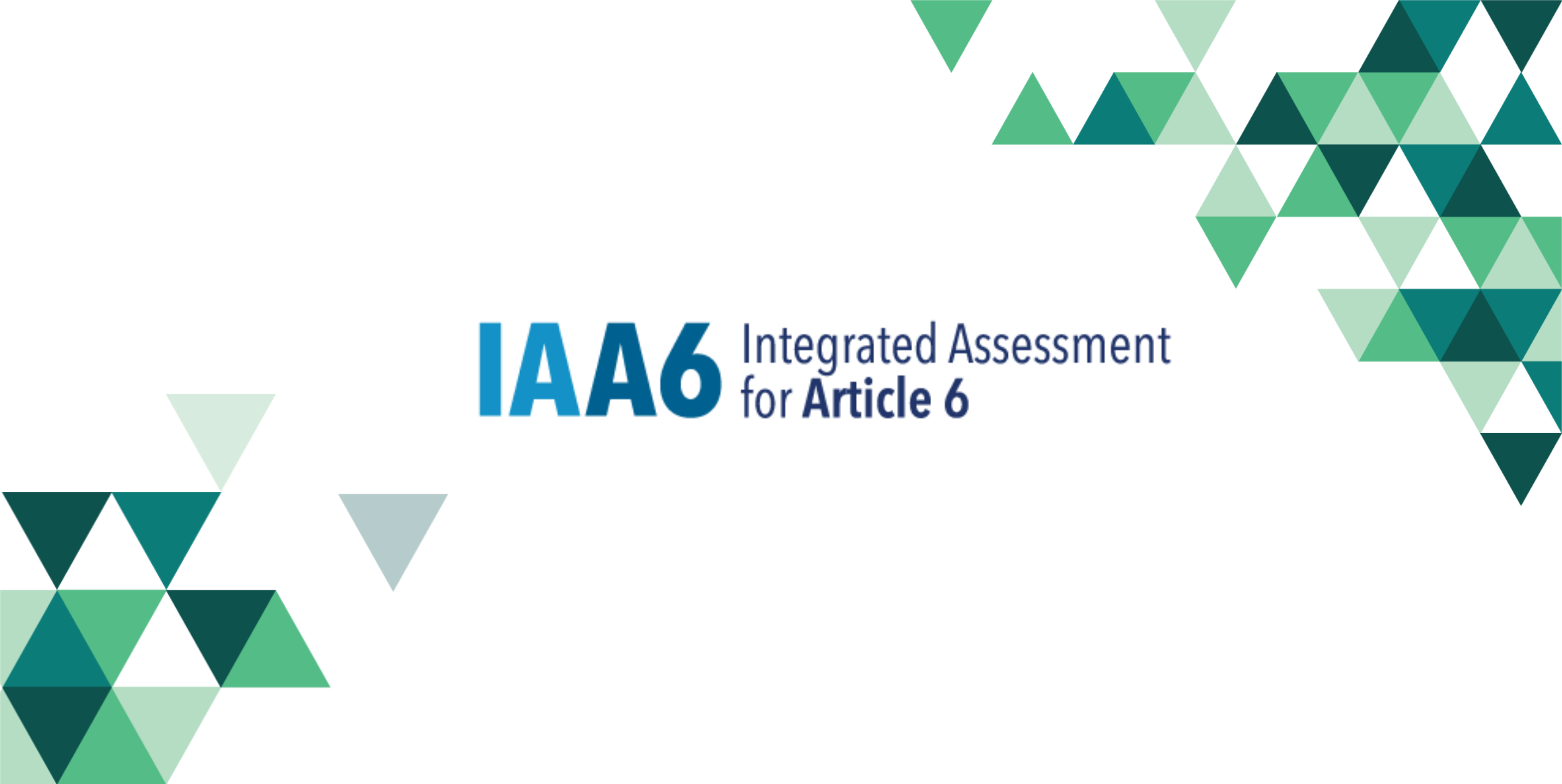
Integrated Assessment for Article 6 (IAA6) in Tanzania - (Consultancy)
The Integrated Assessment Approach to Article 6 of the Paris Agreement (IAA6), developed by UNOPS, provides countries with a practical framework to align their mitigation strategies with their Nationally Determined Contributions (NDCs), the Sustainable Development Goals (SDGs), and the broader objectives of the Paris Agreement.
Tanzania, together with Peru and Sri Lanka, is among the first countries to test and refine this framework. The initiative will strengthen Tanzania’s ability to analyse, plan, and implement Article 6 cooperation effectively while ensuring environmental and social integrity.
The project is implemented by a consortium led by Perspectives Climate Research, Climate Analytics, and Climate Action Network Tanzania. The consortium leverages extensive expertise in Article 6 rulemaking, carbon markets, sectoral decarbonization pathways, and national climate policy development specific to Tanzania and other low- and middle-income countries. The IAA6 approach is designed to be systemic and actionable, emphasizing evidence-based decision-making through integrated assessment modeling (including the open-source SiSePuede tool), alignment with international transparency frameworks, and promoting transformational shifts in climate policy.
By fostering South-South cooperation, the approach aims to enhance climate ambition, facilitate implementation of NDCs, and promote broader regional and global adoption of Article 6 cooperation frameworks, with particular attention to environmental and social integrity, and sustainable development outcomes
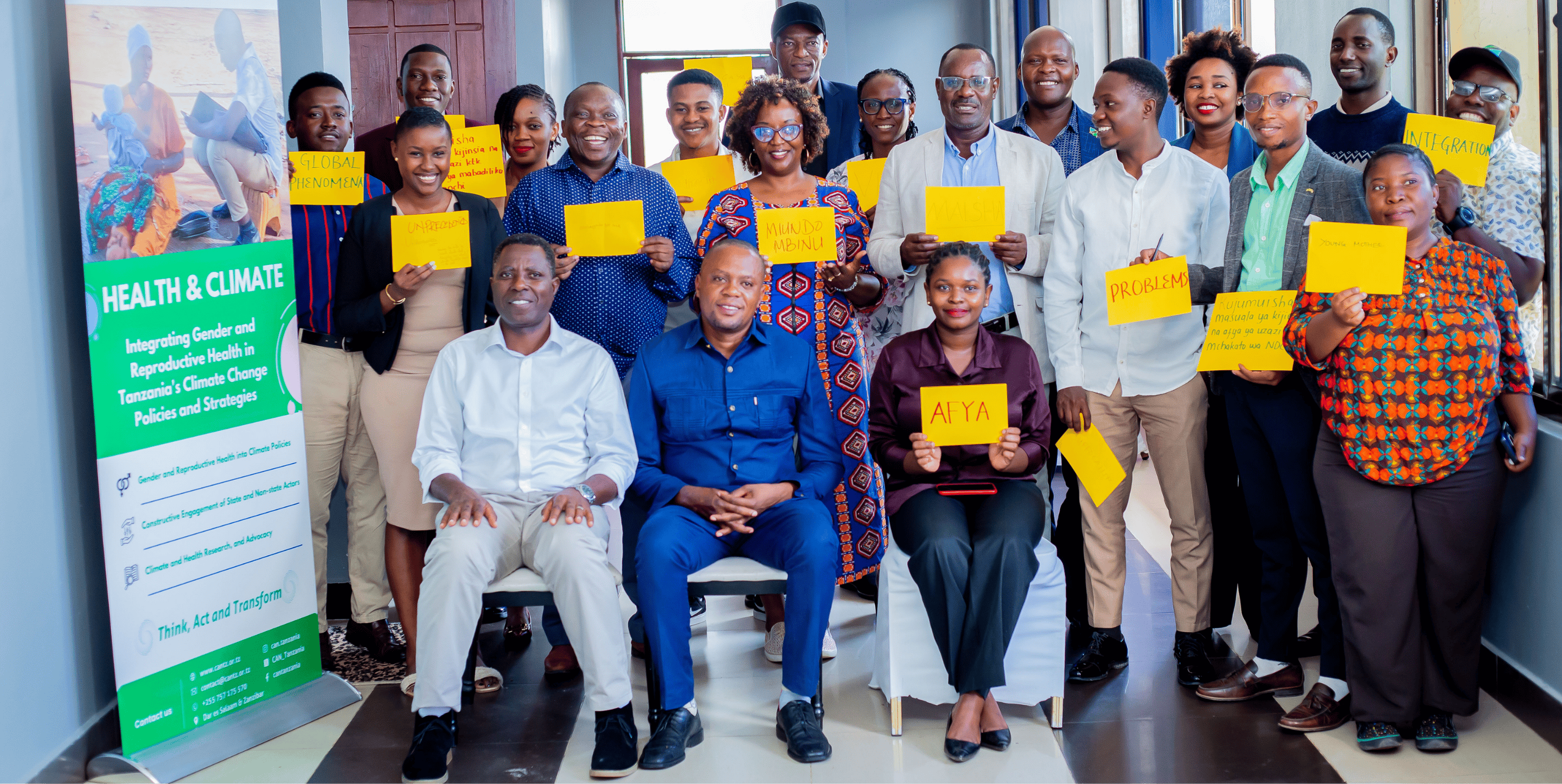
Strengthening CSO Voice for Climate-Resilient Health System in Tanzania
The increasing frequency and intensity of climate crises pose a significant threat to the healthcare system in Tanzania. Despite this, health sector plans, programs, and interventions do not explicitly incorporate climate change considerations to address climate-related health risks. Additionally, CSOs' participation in policy-making spaces is limited as they lack knowledge, capacity, and networks to call for and coordinate the nexus of climate-health agenda in policy discussions and planning processes.
"Strengthening CSO Voice for Climate-Resilient Health System in Tanzania" project is a two-year program that aims to empower at least 15 CSOs from highly vulnerable regions to influence the development and implementation of climate-health adaptation policies. The project focuses on three areas: raising awareness and advocacy skills on the climate-health nexus, facilitating dialogue with government and key stakeholders, plus establishing support structures for trained CSOs continual engagement. This strategic approach is aimed at developing and implementing concrete actions that enhance the resilience of communities to escalating climate-related health challenges.
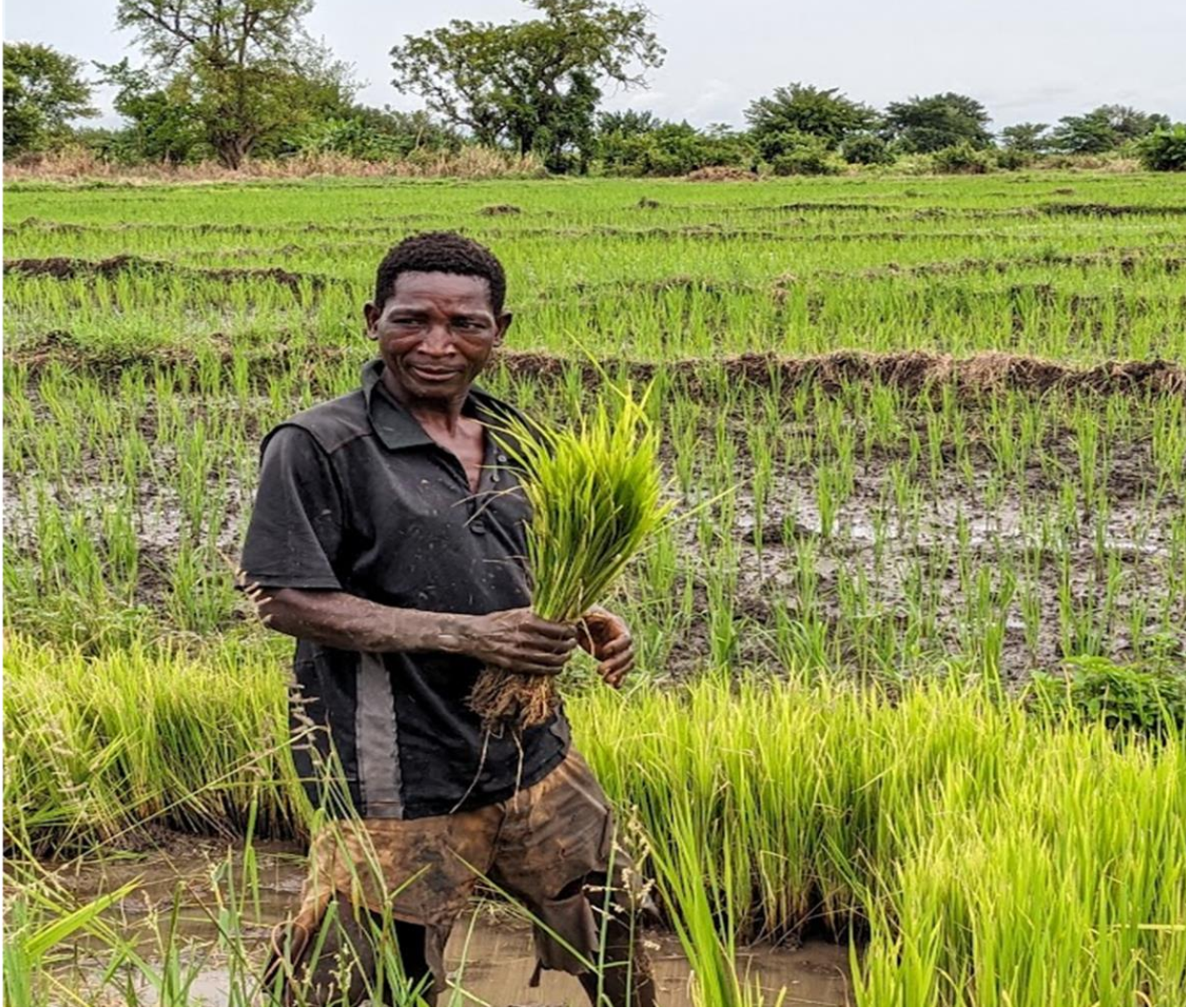
Scaling-up Nature-based Solutions (NbS) for Climate Change Resilience in Tanzania (RESOLVE-NbS)
The RESOLVE-NbS project is a three-year activity funded by the Norwegian Agency for Development Cooperation (NORAD), focusing on high-production agro-ecological landscapes in Iringa and Morogoro within the SACGOT region. The RESOLVE-NbS project contributes to and aligns with Tanzania's National Climate Change programming, including priorities set out in the NDC (2021), currently being revised, and the National Environmental Master Plan for Strategic Interventions (2022-2032), as well as other Tanzania’s global commitments, such as AFR100 and UNFCCC.
The RESOLVE-NbS Project will be delivered through a partnership between IUCN, the Government of the United Republic of Tanzania, and implementing partners, including CAN Tanzania, EAMCEF, CARE Tanzania and WWF Tanzania, and NCMC.
The main objective of the RESOLVE-NbS project is to accelerate the application and use of Nature-based Solutions to address the impacts of climate change and land degradation on food systems and natural ecosystems.
Specifically, the project intends to:
- Enhance awareness, capacity, and knowledge management for improved NbS planning, mainstreaming, and implementation.
- Implement NbS for ecosystem-based adaptation (EbA), disaster risk reduction, and mitigation through pilot and scale-up projects, and contribute to conservation, sustainable management, and restoration of natural ecosystems.
- Integrate gender-sensitive NbS and climate-smart planning into adaptation and disaster reduction policies, strategies, and plans.
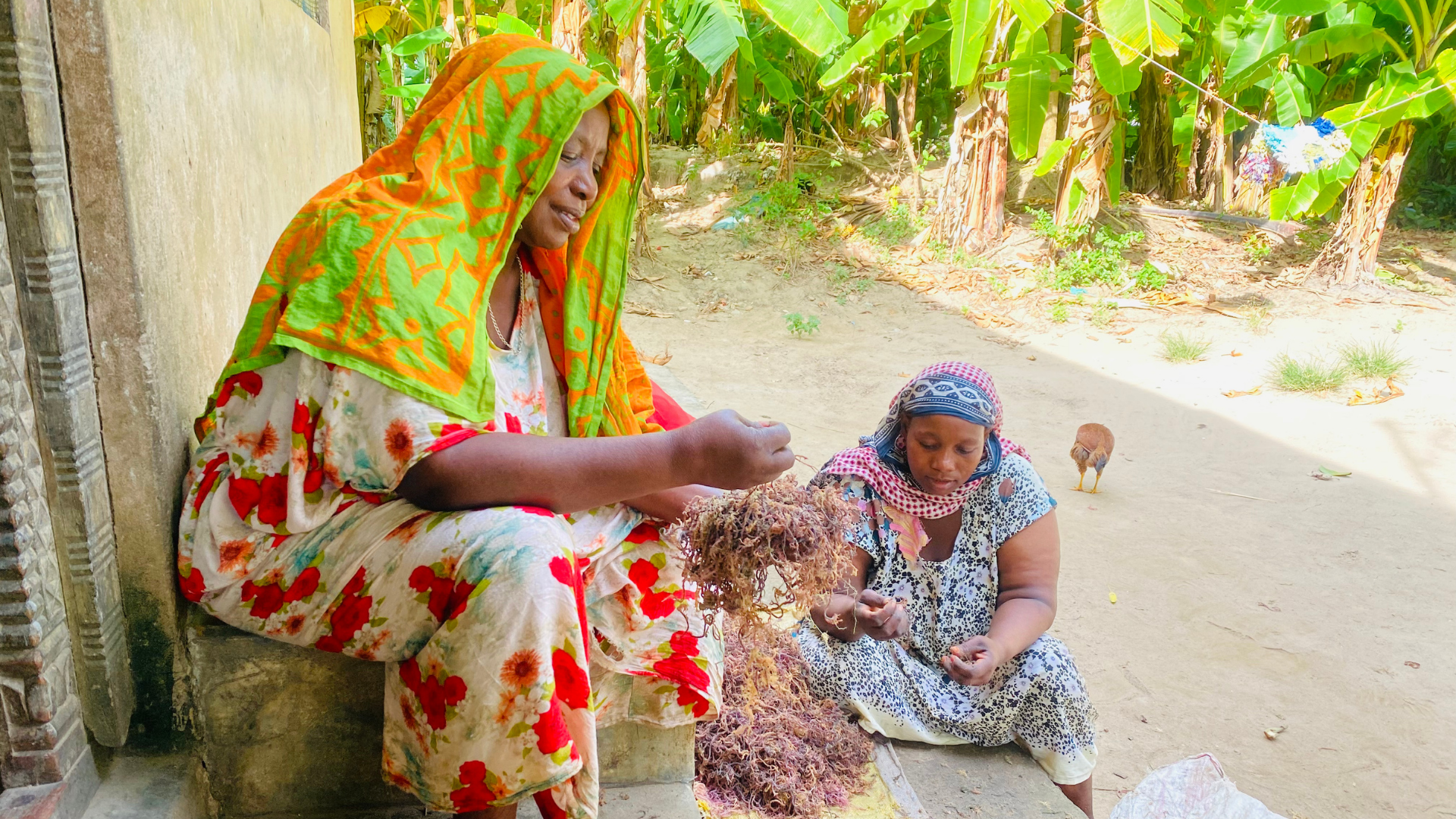
Strengthening the Contribution of Local Actors for a Climate Resilient Society in Zanzibar (Phase II)
This project, implemented by Climate Action Network Tanzania (CAN Tanzania), is a follow-up on the achievements and lessons learned from its pilot phase in Chuini, Zanzibar. The project responds to the identified vulnerability of Zanzibar’s communities, whose livelihoods in agriculture, fisheries, and tourism are highly climate-sensitive, by empowering local actors to lead and participate in climate adaptation and resilience-building efforts.
In its previous phase, the project successfully enhanced preliminary climate adaptation knowledge, piloted participatory risk assessments, supported policy review processes, trained journalists on effective climate reporting, and strengthened community-led actions such as mangrove restoration and sustainable livelihood initiatives like beekeeping.
In this phase, we aim to deepen these achievements by expanding the project location to Chuini and Mtakuja Shehia to enhance stakeholder engagement, strengthen local governance, and scale up locally led adaptation strategies. It incorporates comprehensive training and capacity-building programs, supports the integration of climate resilience into local and national policy frameworks, and promotes income-generating, environmentally friendly activities. The project also emphasizes robust monitoring and evaluation, advocacy for inclusive policy development, and sustainability planning to ensure that climate resilience becomes embedded in Zanzibar’s systems and structures for the long term.
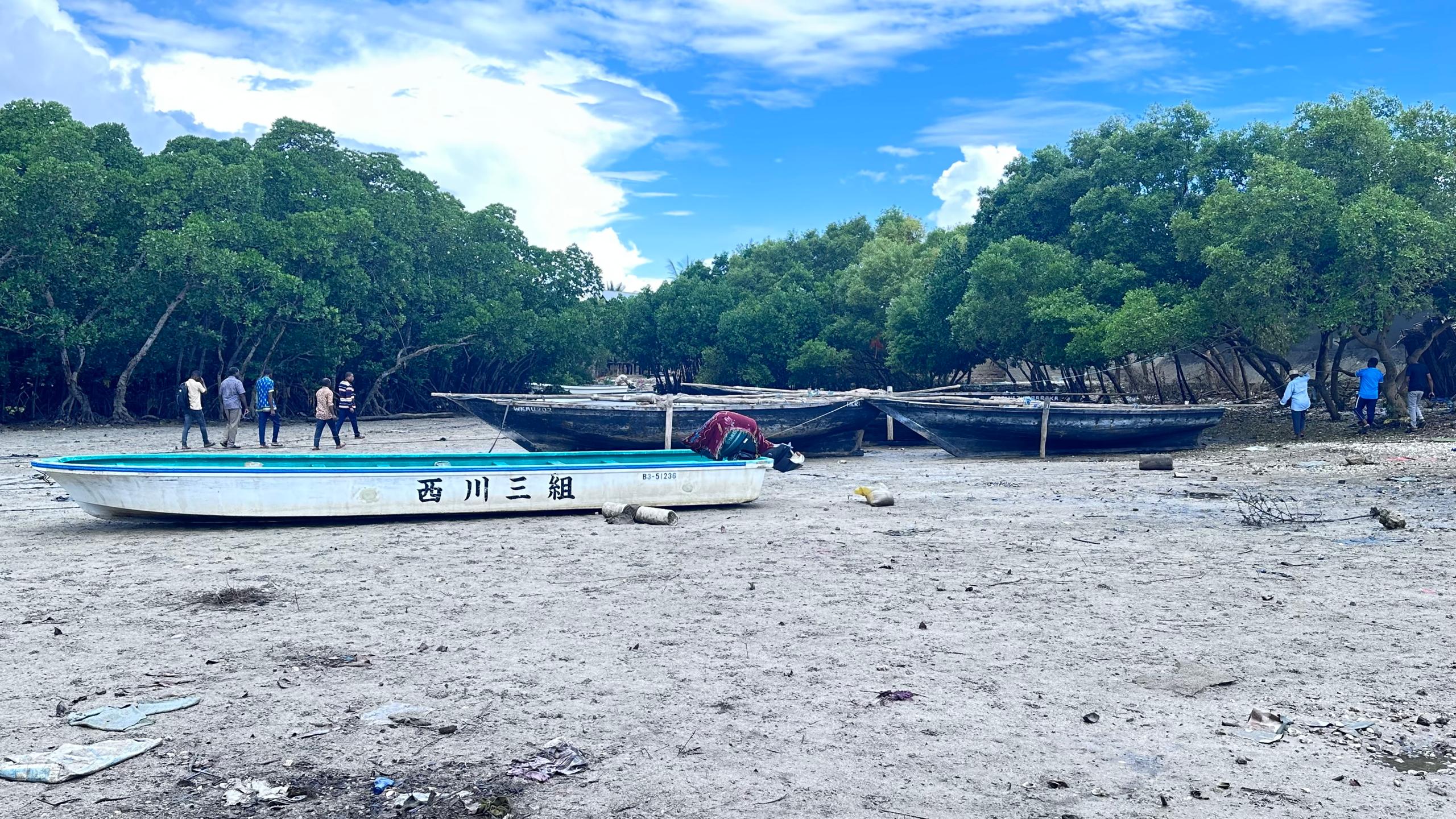
Strengthening Conservation and Climate Resilience on Tumbatu Island, Zanzibar, Tanzania.
General Introduction:
Tumbatu Island, located within the Tumbatu Marine Conservation Area (TUMCA), is a critical biodiversity hotspot in Zanzibar, Tanzania. Established as a marine protected area (MPA) in 2014, TUMCA spans 162.9 km² and aims to conserve marine ecosystems while promoting sustainable fishing practices. The island boasts diverse habitats, including extensive mangroves, multi-species seagrass beds, coral reefs, and terrestrial forests that support endangered species like green sea turtles and Eastern tree hyrax. These ecosystems provide vital services to local communities, sustaining livelihoods through artisanal fishing, gleaning, and small-scale businesses while offering natural protection against climate hazards such as sea level rise. However, Tumbatu faces significant challenges like overfishing, habitat degradation, mangrove loss, and the impacts of climate change, threatening both biodiversity and community resilience.
This project aims to address these challenges by emphasizing participatory conservation through co-management frameworks such as Local Marine Management Areas (LMMA) led by Shehia Fishers Committees (SFCs). These initiatives aim to balance resource use with biodiversity conservation while empowering local communities to manage their natural resources sustainably. Addressing these requires integrated strategies that combine effective management plans, community engagement, alternative livelihoods development, and climate change adaptation measures to ensure long-term ecological and socio-economic stability for Tumbatu Island. Key stakeholders include the Ministry of Blue Economy and Fisheries and the Department of Marine Conservation, alongside local leadership.
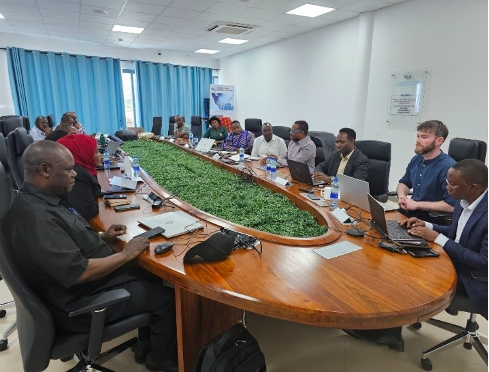
Integrating Gender and Reproductive Health into Climate Change Policies and Strategies in Tanzania
General Introduction:
The climate crisis is a threat multiplier and has already put a strain on Tanzania’s health system by exacerbating existing vulnerabilities to diseases and introducing new diseases globally. Sexual and Reproductive Health are not exceptional, as growing evidence indicates climate change directly and indirectly influences various maternal, reproductive, and child health outcomes and gender inequality. The recent study conducted by Climate Action Network Tanzania in Kilwa District Council has revealed that the changing climate is taking a toll on women’s and children’s health by increasing the prevalence of climate-sensitive diseases such as Malaria, diarrhea which are linked to adverse birth outcomes such as pre-term birth, and other maternal complications. Limited access to health facilities due to paralyzed transportation during floods increased the number of home deliveries and unattended births. High prevalence of anemia and malnutrition among pregnant women and children respectively because of climate-induced food insecurity. Additionally intensified sexual and gender-based violence as a result of household financial instability and resource scarcity. This was further linked to the factors that lead to early marriage and teenage pregnancies.
Despite the clear linkage, reproductive health issues have not been explicitly addressed in country’s climate change policy frameworks. Tanzania is in the process of reviewing the first Health National Adaptation Plan (H-NAP) and developing the third Nationally Determined Contributions. Currently, Tanzania through the Ministry of Health is in the final stages of updating the first Health-National Adaptation Plan. Also, development of the third Nationally Determined Contributions (NDC 3.0) are underway. These national-level documents serve as the main implementation vehicles for both mitigation and adaptation efforts across all climate-sensitive sectors in the country.
The ongoing climate policy developments and reviews present an opportune time for gender and SRH advocacy. CAN TZ will continue to capitalize on existing strong networks with government ministries (Ministry of Health, Vice President Office) to engage in all stages of forthcoming national-level climate policy technical meetings and advocate for the inclusion of sexual and reproductive health dimensions. Additionally, CAN TZ will conduct explorative qualitative research to document how women and young girls navigate the climate crisis particularly in the realms of sexual and reproductive health. The findings from this study will be used to strengthen advocacy efforts and used to inform the ongoing development of H-NAP 2025-2030 and NDC 3.0.
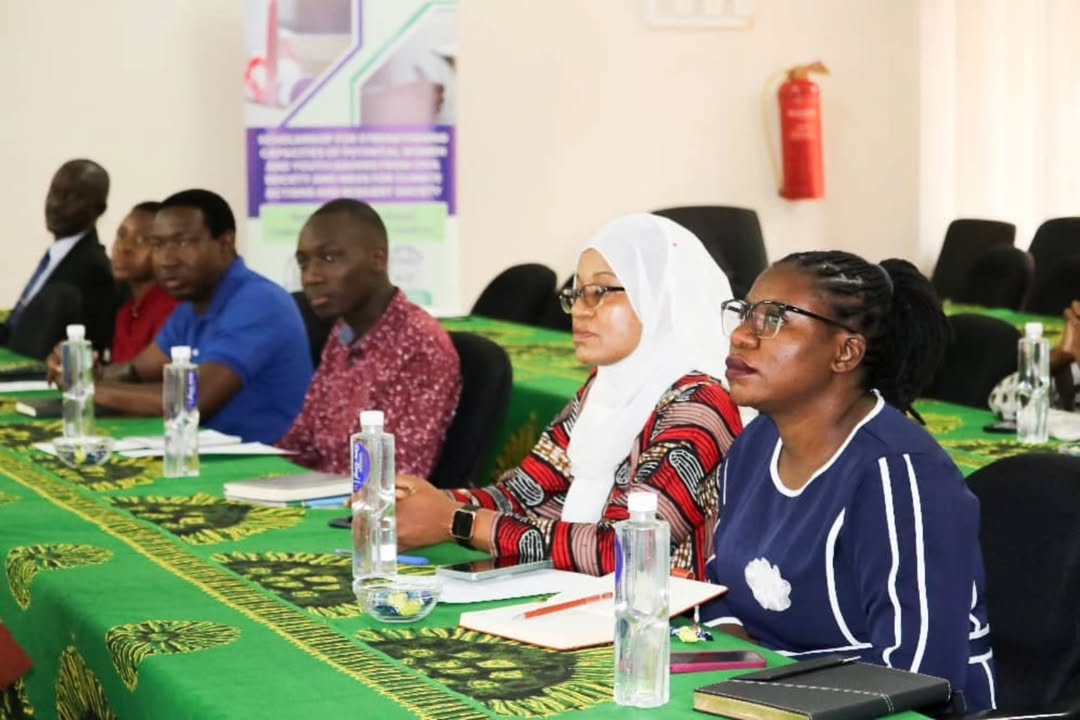
Scholarship for Strengthening Capacities of Potential Youth and Women Leaders from Civil Society and NGOs for Climate Action and Resilient Society
General Introduction:
Vulnerable groups, particularly women and youth, are disproportionately affected by climate change but often lack access to education and resources to combat the impacts. This program seeks to bridge that gap by equipping the next generation of leaders with the tools to:
Develop innovative solutions for climate resilience,
Strengthen community-based initiatives,
Foster sustainable growth and gender equality.
The program is designed to empower young leaders and women with the skills, knowledge, and opportunities they need to address Tanzania's pressing climate challenges while building a more resilient and sustainable future.
Project Target: We target to provide a total of 36 scholarships to project beneficiaries including 10 Master's students from local CSOs, FBOs, NGOs and private sector; 10 for Bachelor's and 16 for Diploma students. Beneficiaries come from local communities across Tanzania mainland and Zanzibar. The project focuses on areas crucial for sustainable development, such as food security, renewable energy, gender studies, ICT, Natural resources, and climate resilience. At least 50% of the scholarships will be awarded to women, ensuring a fair gender balance and amplifying the voices of those most affected by climate change.
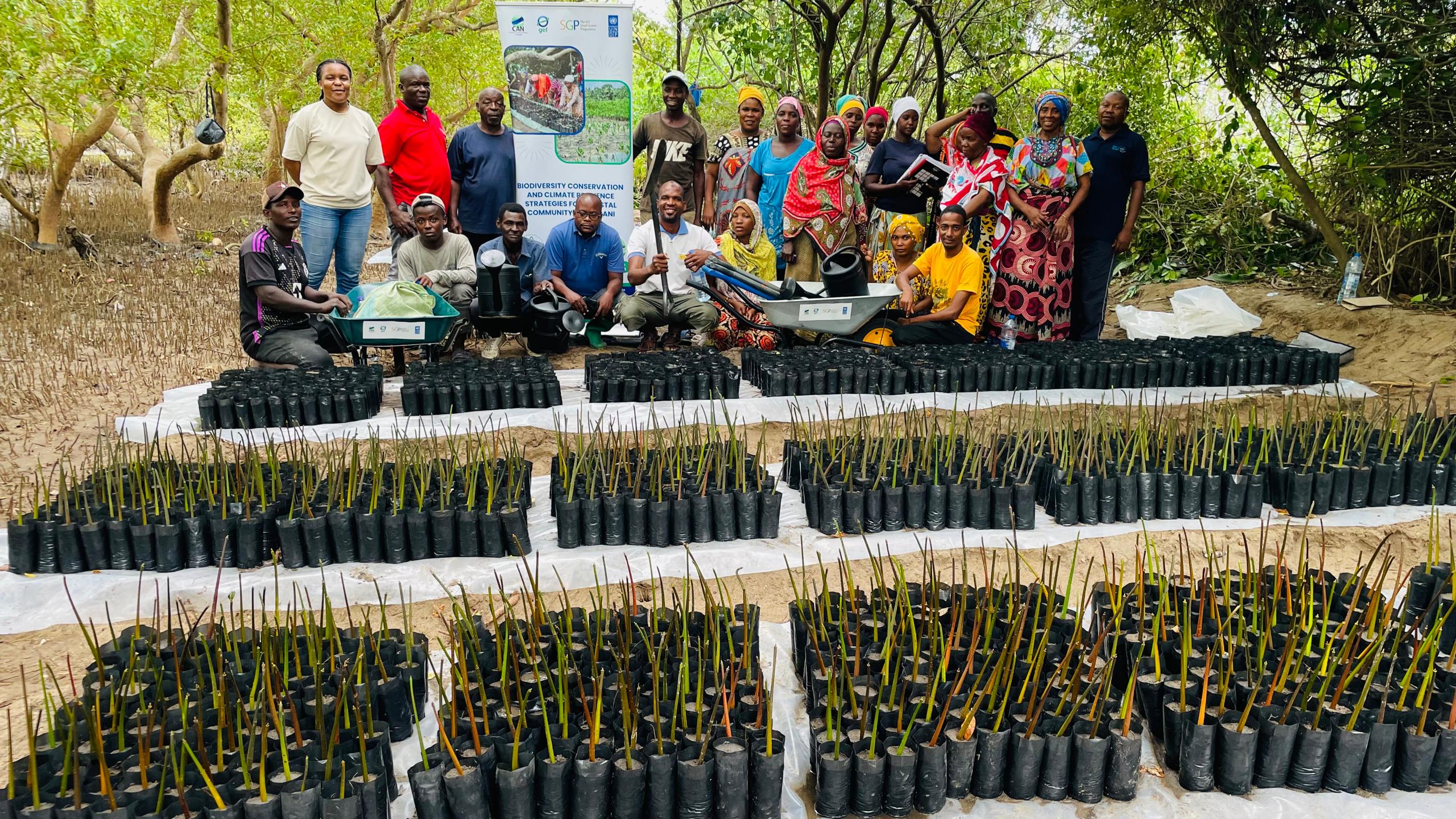
Strengthen and Promote Biodiversity Conservation Capacity and Climate Resilience Strategies of the Coastal Community in Pangani District
Through this project, CAN Tanzania intends to nurture and
strengthen the coastal community's local biodiversity conservation and social
integrity in two villages within the Pangani district. While the district has
abundant coastal biodiversity and marine resources, management and advancement
of sustainable utilization of these resources have remained a concern that
should be addressed.
The project will employ the co-management approach, which
allows communities to take an inclusive and participatory role in, owning, and
managing the environment and natural resources in their community, including
key biodiversity and critical habitats (mangroves and coral reefs), through
locally-led actions and solutions that are primarily developed and implemented
by communities.
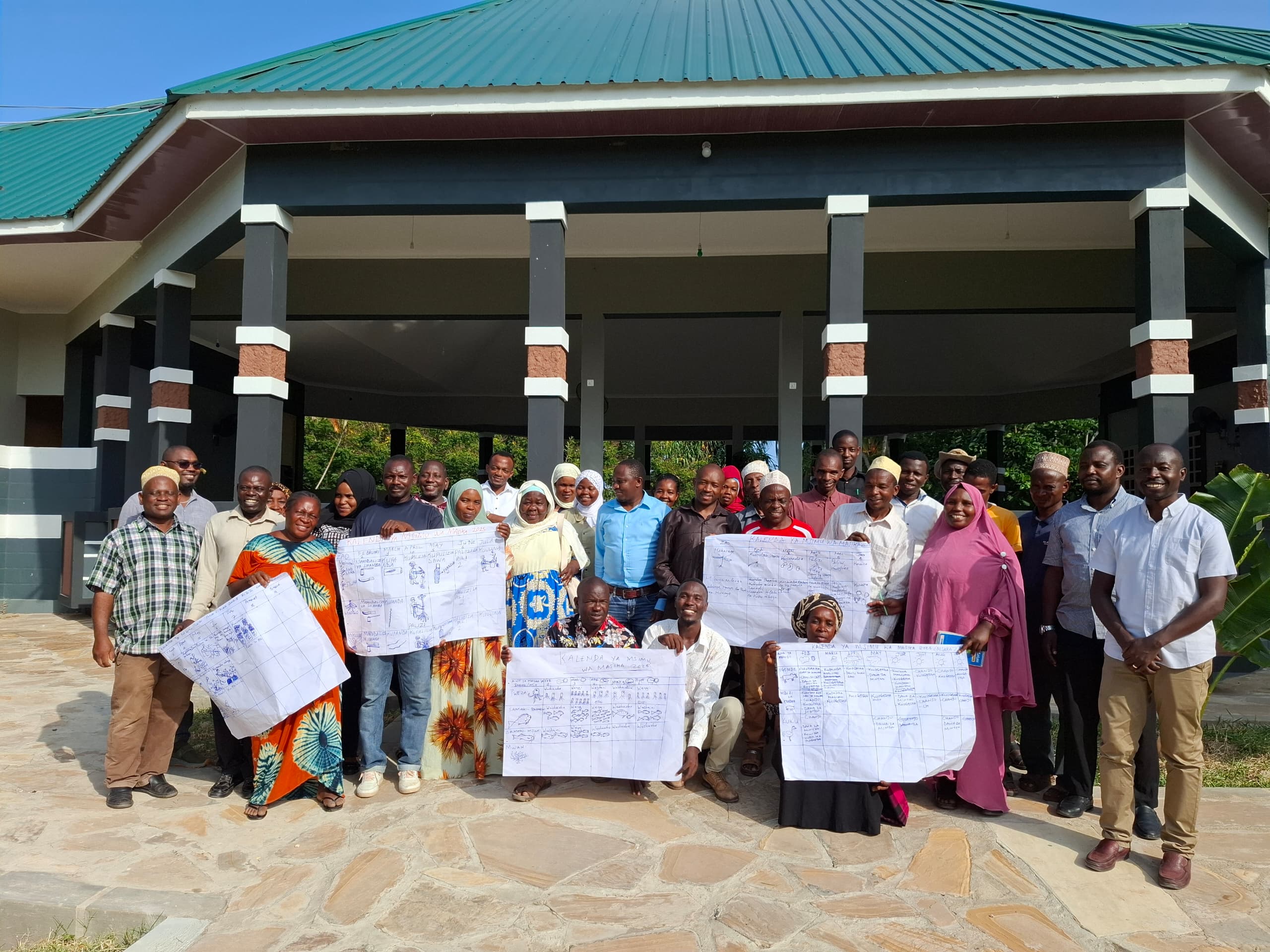
Aligning Climate Resilience, Sustainable Development, and Poverty Reduction (Phase III)
Tanzania has high-quality and enough renewable energy sources to meet most of the country's energy demands. Still, most of these sources have remained unutilized. The Aligning II project supported the co-development of important national frameworks, including the ongoing National Renewable Energy Strategy and the road map to expand renewable energy utilization in Tanzania.
However, limited decentralization of the national energy-related framework is a significant obstacle to achieving the full potential impact of the national strategy on renewable energy, economic development, and social welfare at the local level. This limitation is due to several factors, including limited local resources, inadequate awareness to support renewable energy technology, conflicting frameworks, centralization in the nature of policies, limited stakeholder participation, and weak coordination between different stakeholders.
Aligning III is a 3 years project funded by Bread for the World which aims to integrate Renewable Energy and Climate services to inform strategic sectors such as Agriculture, Livestock, Water and Fisheries in Tanzania by 2026. This project will be conducted in 4 Districts namely; Bagamoyo, Chalinze, Lushoto and Pangani.
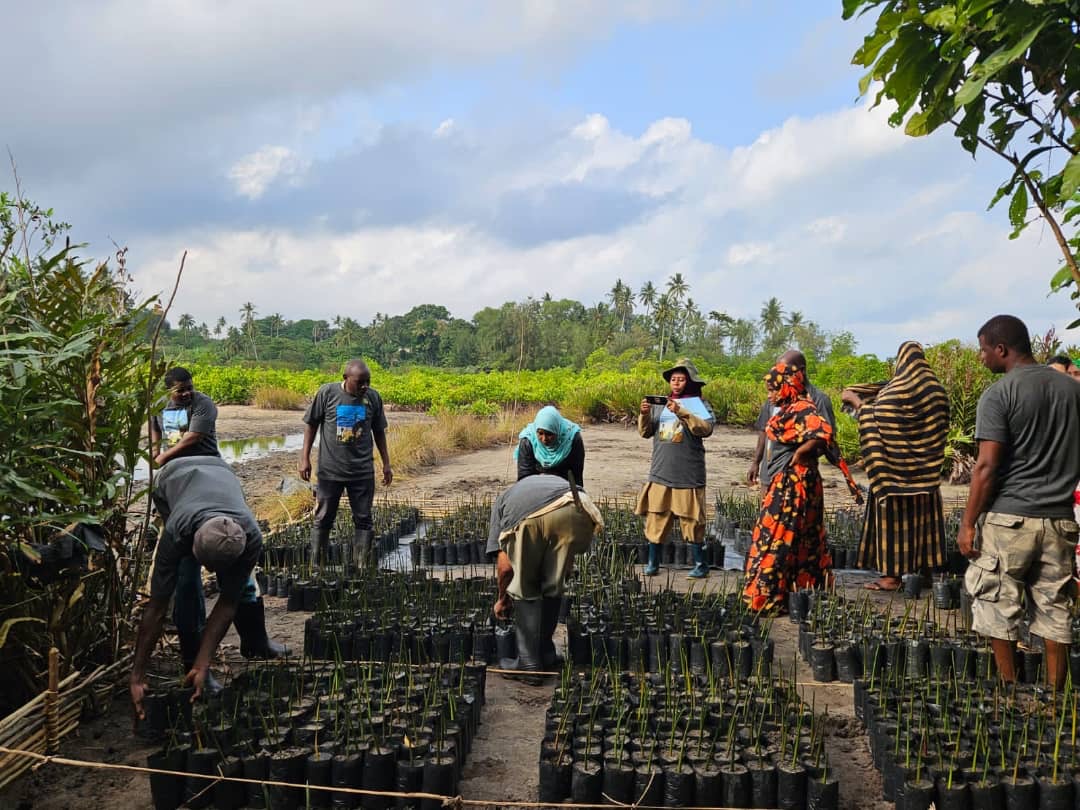
Strengthening the Contribution of Local Actors for a Climate Resilient Society in Zanzibar
Tanzanian coastal areas and Zanzibar islands have complex and dynamic systems in terms of both human activity and biophysical conditions. They carry a substantial proportion of the national population and support several community livelihood options.
Unfortunately, in Zanzibar, the economy, and the livelihood sectors of 87% of the population are climate sensitive with high levels of vulnerability (especially agriculture, freshwater, settlement, fisheries, and tourism) and face environmental degradation. Other linked challenges include droughts, storms, temperature rise, strong wind speed, saltwater intrusion, coastal erosion and displacement, impaired drinking water and soil fertility, and floods.
These climate change and variability challenges are resulting in significant economic costs, loss of life, poverty, and other human capital which compromise food and water security for most local communities.
Therefore, the project
contributes to developing climate resilience in local communities in Zanzibar.
Objectives
The project aims to improve climate change adaptation
practices in Zanzibar by 2025 and support the reviewing of Zanzibar political frameworks (Zanzibar Climate Change Strategy and/or Zanzibar Environment Policy strategies) in a participative manner and are coherent with the NDC.
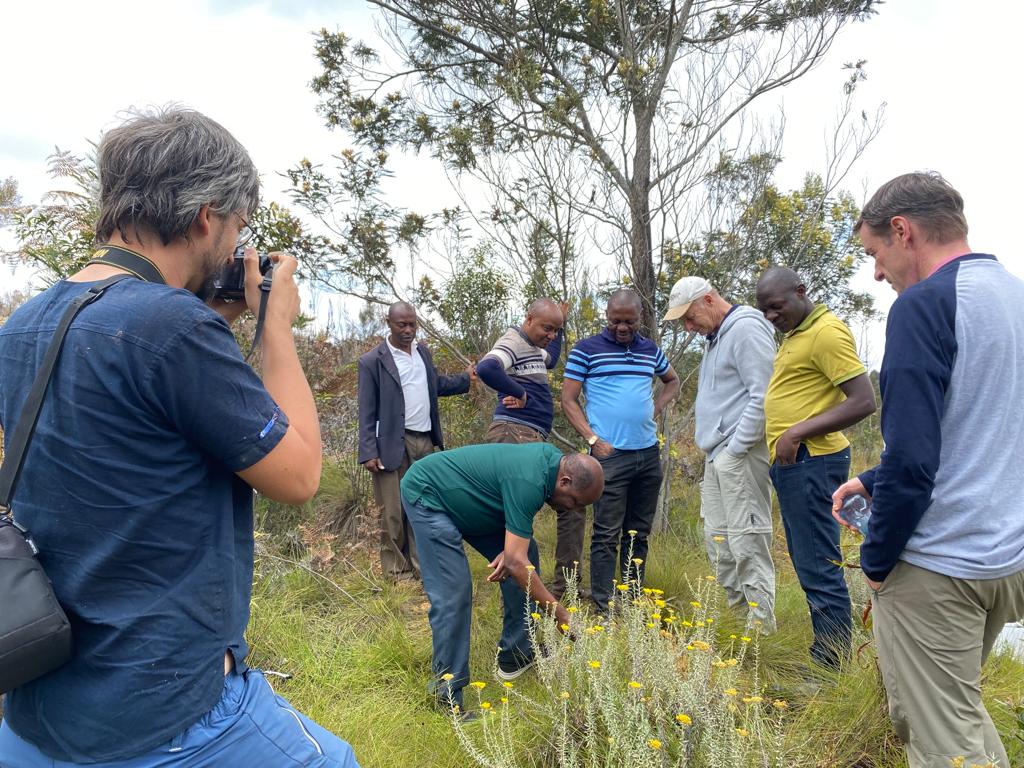
Promoting Community-Led Nature-Based Solutions through Reforestation Efforts in Pangani District, Tanga Region and Same District, Kilimanjaro Region: PRO-NDC-ACT
Variability in weather conditions such as intense rainfall events or dry spells pose serious risks for vulnerable communities and call for urgent action in order for them to adapt to these changes and become more climate resilient through nature-based solutions. However, to this date, forests provide over 85% of Tanzania’s energy supply driving cascading effects of deforestation fueled mainly by unsustainable practices in agriculture, livestock keeping and charcoal production. It is key to break the downward spiral of deforestation by identifying spaces for reforestation and facilitating sustainable natural resources.
Cooperating with Carl von Ossietzky University of Oldenburg, the upcoming PRO-NDC-ACT project aims to promote ambitious, participatory and community-led NDC (nationally determined contributions) implementations. They shall be implemented by introducing nature-based solutions through community-led participatory and restoration efforts in different sites in coastal and northeast Tanzania. In total, the project’s objective is to establish 500 ha of near-natural community-based reforestation sites by 2025, leading to reductions in GHG emissions, lower climate risks for vulnerable communities, as well as enhanced ecosystem services.The project is funded by the International Climate Initiative of the German Federal Government to the amount of around 520,000 Euros.
Real-world laboratories:
Co-designing nature-based solutions and promote community-led, participatory forest management practices
The community-led real-world laboratories will involve two participatory reforestation and mangrove restoration initiatives in which community members co-develop and pilot such nature-based solutions, simultaneously linking national and local levels by engaging with local government authorities to agree upon specific development objectives. The scientifically involved real-world labs will build on baseline studies that identify selection criteria and collect socio-economic and ecological background information under consideration of soil and environmental conditions and expected climatic changes. Furthermore, communities that are threatened by important ecosystem goods and services will be identified.
Demonstration projects on reforestation and ecosystem restoration:
Planting indigenous tree and mangrove species
To ensure the success of the reforestation activities, they will be continuously monitored over the next coming years. Needs regarding the target of afforestation, selection of sites and species, and restoration will be assessed together with local community members in a participatory manner. CAN Tanzania will moreover train them on the importance and ways to protect them for enhanced ecosystem services.
Knowledge generation and outreach:
Holding national stakeholder workshops to disseminate best practices and lessons learned
Common learning processes will be monitored, evaluated, and facilitated in scope of the project. CAN Tanzania will organize and document national stakeholder processes and workshops on how to mainstream reforestation and disseminate guidelines on local initiatives for NDC implementation.
Key target groups involve local government authorities, CSOs and community members such as farmers, woodcutters and charcoal producers, fishers, women and youth, who can benefit from increased resilience to climate risks, climate literacy and enhanced ecosystem services. The project and related activities have paid attention to gender mainstreaming and participation through a number of measures. CAN Tanzania will target real-world laboratories specifically to women by using participatory and gender-sensitive approaches. In all project sites women, poor, aged and youth groups shall be given opportunities to take part both in reforestation activities and capacity-building workshops on ecological forest management and sustainable use of forest resources, to additionally strengthen ownership and a spirit of community and solidarity.
The PRO-NDC-ACT project will add value to ambitious and participatory NDC implementation at the community level. It enhances ecosystem services and forest management practices important for livelihood diversification, while also building a climate-resilient Tanzanian society.
Learn more about the project: https://uol.de/en/ecoeco/pro-ndc-act
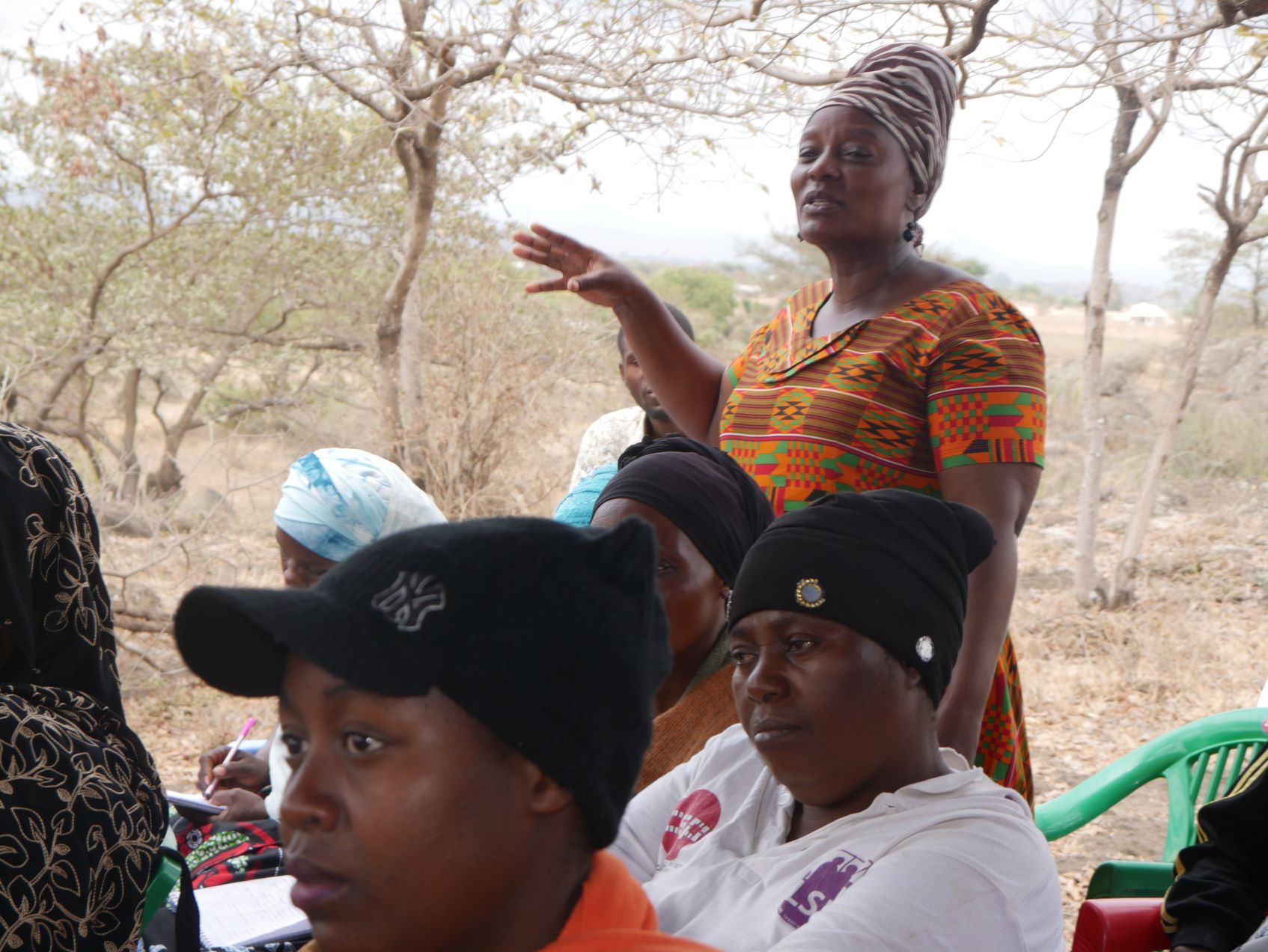
Integrating Sexual and Reproductive Health and Rights into Climate Change policies and Strategies in Tanzania (INSECT)
Climate Change can have serious impacts on Health in Tanzania. Specifically pregnant women can experience high risks and health challenges under climate-induced stress (drought, malnutrition, heat waves etc.). This project will strengthen the sexual and reproductive health and rights (SRHR) for women in Tanzania, to empower them to participate in healthy and self-determined adaptation activities. The project's objective is to strengthen the capacity of the Ministry of Health to co-develop and implement policy and actions that address Health challenges arising from climate impacts. Particularily by supporting the review of the Health National Adaption Plan (HNAP), Climate Action Network Tanzania (CAN TZ) will contribute to establishing and sustaining mechanisms to coordinate health and climate actions. Additionally, the project will enhance implementation and planning for projects around the Nexus of Health and Climate by advocating and supporting a task force to mainstream Health and climate into the health teaching curriculum.
Co-Develop a reviewed Health National Adaption Plan
CAN Tanzania will support the Ministry of Health to review the current Health National Adaptation Plan (HNAP) to include sexual and reproductive health and right (SRHR) issues as a key climate change adaptation intervention area. CAN Tanzania will engage serval key stakeholders (CSOs, experts, MDAs etc.) in the draft and review process. CAN Tanzania will create a form to discuss existing SRHR gaps in the current HNAP and lead the process to include SRHR in the development of new HNAP which is ending in 2023, and take active participation in the development of the new HNAP.
Mainstream the health and climate Nexus into the health teaching curriculum
CAN Tanzania will facilitate initial consultations with the Ministry of Health (MoH), the Ministry of Education, Science, and Technology (MEST), and other important parties as a basis for creating a curriculum for health and climate education. This will involve forming a technical taskforce to facilitate early discussions and planning for the development of a formal teaching curriculum about climate change and SRHR in schools, local communities, and among healthcare professionals. This will create the basic foundation and buy-in from the MEST, MoH, and stakeholders as a required preparation for the subsequent phase of developing the curriculum for climate education in the future. Once developed and adopted by the government, it will be used by all players in the climate and health education space in the country.
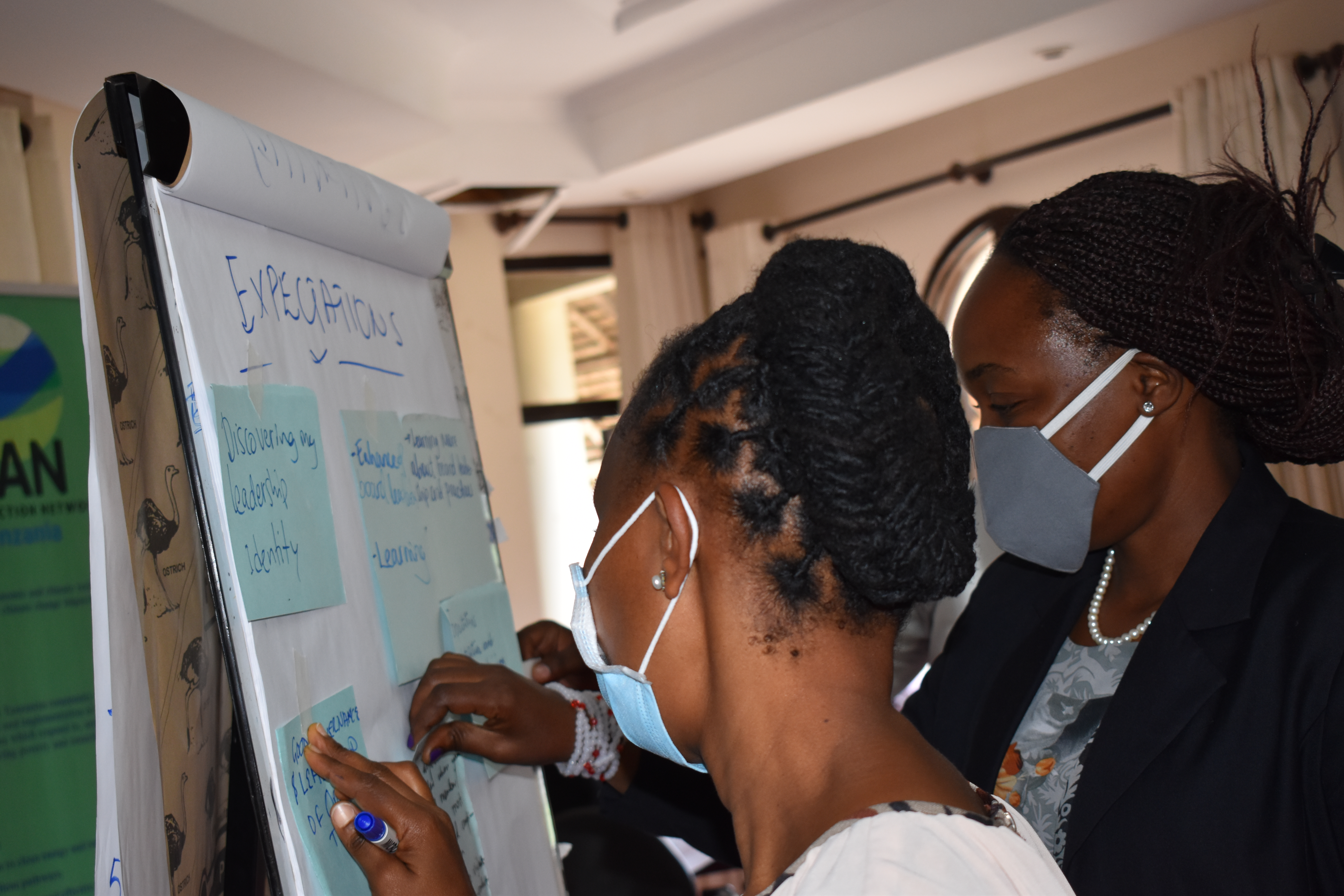
CAN Tanzania Node Development
As part of Climate Action Network (CAN) global, CAN Tanzania took part in the CAN strategy meeting in 2019, a renewed approach for CAN was developed, through which we as a network challenged ourselves to step up our game to address the climate crisis:
● Long-term approach: back-cast from 2030 timeline for movement driven approach rather than moment driven approach
● 3 Pillars will guide our work: Ambition, Impact, Support
● Interconnected two-track approach: People and Policy
● Equity and Justice will guide us
● Science, especially the 1.5 report and urgency will guide us
● Adjust language and framing to match the needs of our audiences – priority: more accessible language on Climate for people
● Stand in solidarity with the vulnerable and the marginalized and the planet
● Adopt an integrating approach by linking to other issues e.g. Human Rights, Environmental Justice, poverty, inequality, planet, and biodiversity
● Connecting the intl. level with nat. level and grassroots in an inclusive way
At CAN’s global strategy meeting in 2020 held in Arusha, Tanzania, we further operationalized this renewed approach and concluded 3 pillars to drive our work:
● Catalyzing Transformational Change
● Shutting Dirty Down
● Building Power through movements
To make this possible, the network jointly concluded the need to empower and strengthen Nodes to play a more central role to implement the above. To put the network on a pathway to become truly Node-driven, the challenges and stumbling blocks faced by the majority of the Nodes need to be addressed.
The purpose of this grant is to strengthen and empower CAN Nodes to reach the jointly defined criteria for effective Nodes. In doing so, it aims to enhance the Nodes’ capacity to effectively convene their members and develop impactful strategies to tackle the climate crisis as a network.
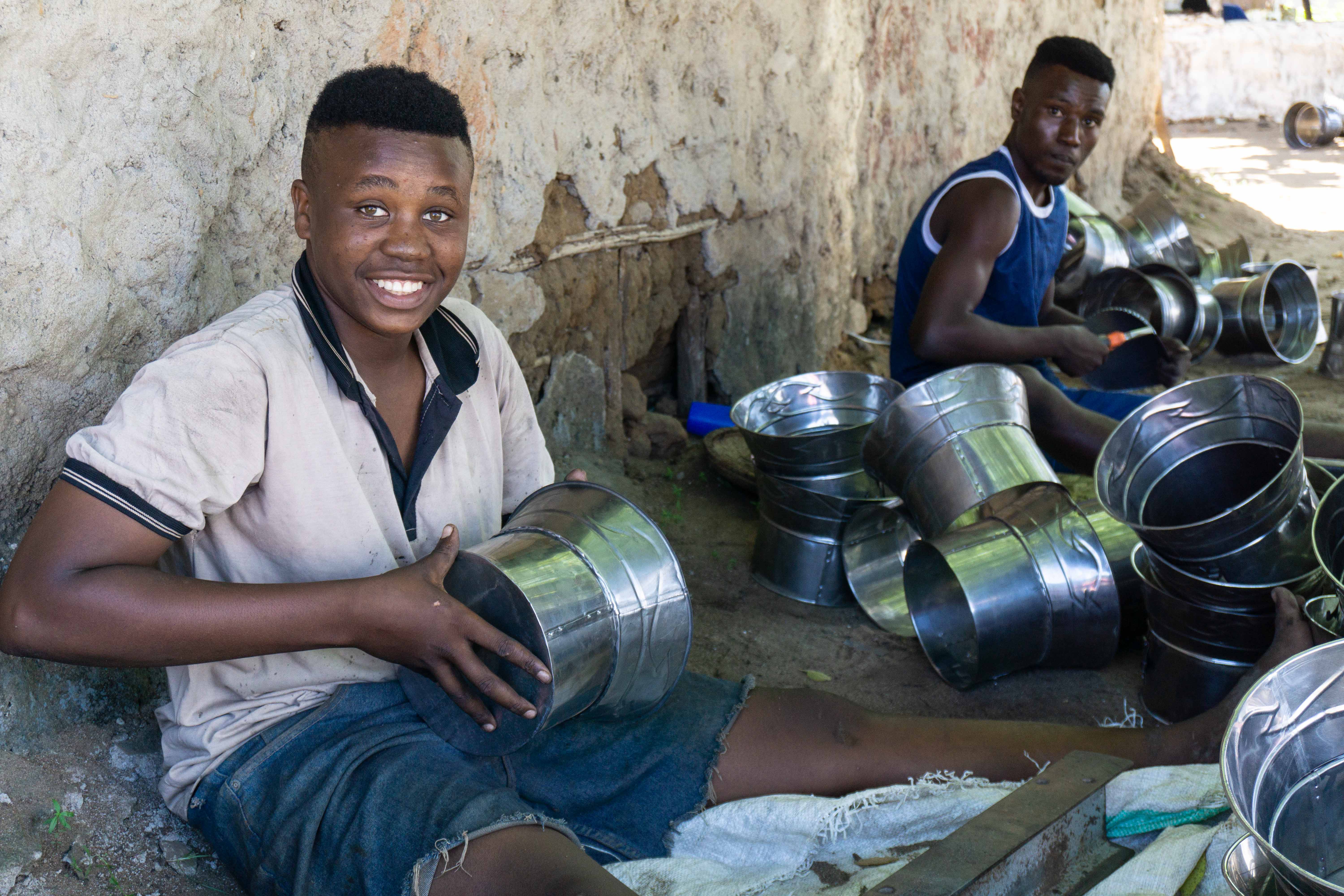
Clean and Affordable Energy: Contextualising the bottom-up approach on influencing the transition to clean and affordable energy systems in Tanzania
The existing policies poorly protect climate vulnerable groups and unreliable climate services increase the exposure of their livelihood activities to current and future shocks. Vulnerable communities are highly exposed to climate change and experience loss and damage due to low adaptive capacities and poor livelihood diversification approaches.
Through lobbying and advocacy work we enhanced the awareness especially on the local level to ensure the green energy transition. The entire project was based on a baseline study, which will provided a benchmark for technical backstopping for local CSOs and revealed existing potential for transitioning to clean and affordable energy in Tanzania. This was aligned with various capacity building activities on topics like clean energy technologies and clean cooking. The effective use of clean energy for LGAs, village leaders, community development groups, CSOs and highly marginalized groups such as woman and youth was promoted as well.
During strategic meetings and trainings a lobbying strategy was developed. Furthermore, we organized a clean energy essay and drawing competition as well as discussions in secondary schools to enhance the public dialogue on transitioning to clean and affordable energy.
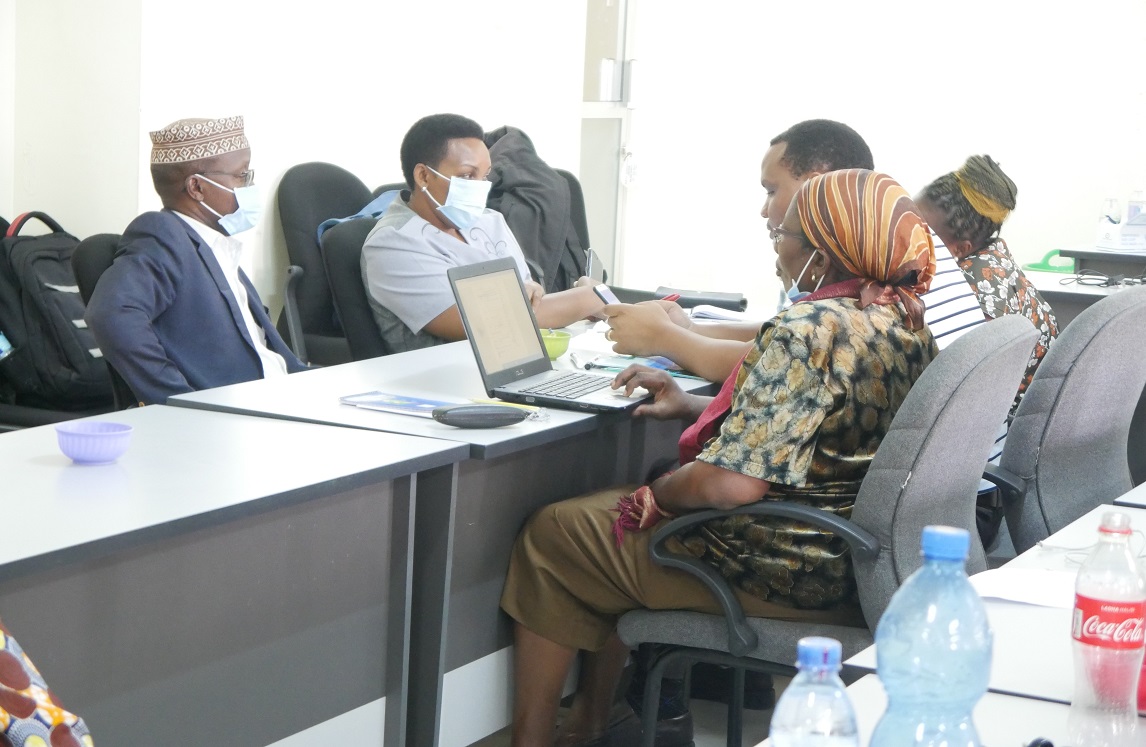
Participatory NDCs for a climate-just response in a COVID-19 world
The submission of revised national climate plans (NDCs) under the Paris Agreement is an important milestone in 2020 in order to further close the large gap between the climate targets and the previous requirements of the governments. Due to COVID-19 situation, conditions for an active CSO engagement are very difficult due to the unlimited attention to COVID-19 and the partial Little attention to climate policy, government restrictions on travels and gatherings, etc.. Awareness of cumulative effects and various solutions for both climate change and COVID-19 among decision-makers in project countries is very low due to the strong COVID emergency approach. Tanzania like many project countries treat climate measures during the COVID19 recovery phase as secondary and see these two as completely decoupled. The project addresses this situation with a focus on the voice and the contributions of civil society organizations in the project countries, especially in Bangladesh, Tanzania and Uganda, for participatory and gender-equitable improved NDCs in the context of the COVID-19 recovery are taken into account when creating the NDC.
Tanzania submitted its first Intended Nationally Determined Contribution to the UNFCCC by 2015. Since 2015, the URT has been revising and updating the NDC and implementation plan to ensure they are ambitious and realistic commitments. The process has been slow that expected due to limited available resources and the arising challenges like COVID-19 which have been changing the wave of focus of the government. Currently the review process of the Tanzania NDC is complete, and the NDC has been submitted to the ministerial cabinet for approval to be submitted to the UNFCCC and effective commencement of the implementation.
Through this project, the second review of the draft NDC was conducted to address the key issues of gender, WASH and blue economy which were missing. This also provided an opportunity for enhancement of CSOs in the technical session of revising the NDC and implementation plan that ensured practical ambitions on both adaptation and mitigation, expected to strengthen monitoring, reporting, engagement, ownership and build country resilience to the impacts of climate change and equally contribute to the global effort of reducing GHGs emission.
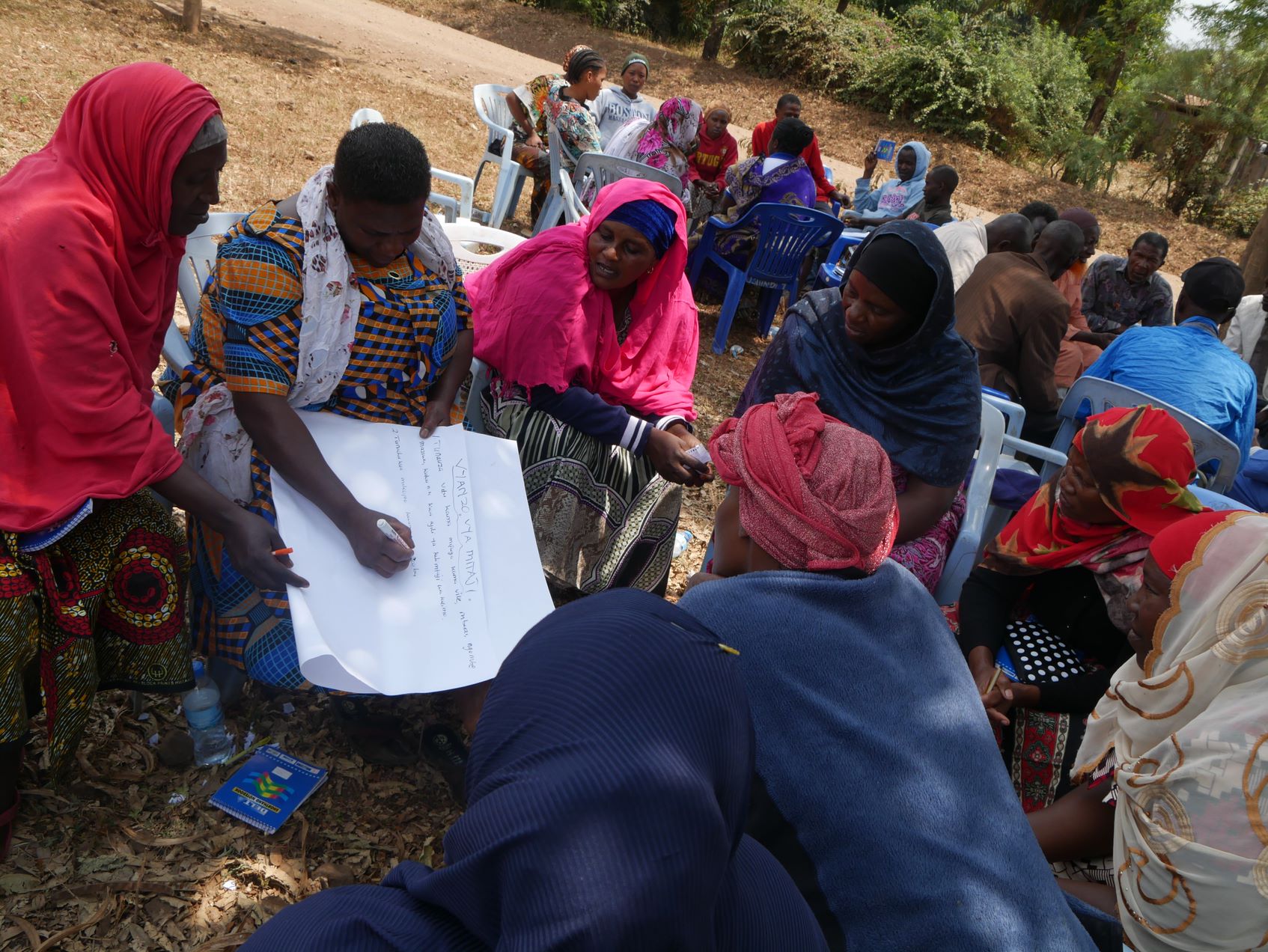
Enhancing the role of Solar Irrigation for Poverty Reduction Near Mt. Kilimanjaro
The project for enhancing the role of solar irrigation for poverty reduction is aiming at enhancing the adoption of solar-powered irrigation technology by the smallholder farmers in the three target project areas, leading to improved and diversified food production, enhanced climate resilience and overall social well-being, enhanced environmental conservation and climate change resilience.
Due to climate change water stresses in most tanzania communities increased. Research show that the effect of severe droughts in Hai District impact agriculture production and food security significantly.Traditionally for irrigation water from river diversions or natural springs were used. This secured the food security and income to the majority of farmers in Hai District. However, the situation has changed in recent year so farmers are no longer able to rely on traditional irrigation techniques. Due to the change of rainfall patterns streams and rivers does not flow anymore predictable continuously throughout the year.This project addresses theirfore the need for a sustainable all-year-round irrigation. The project is implemented in the three villages of Ngosero, Kilima Mbogo and Mkombozi which are located in the dry lowland plains of the southern part of Mt. Kilimanjaro.
Hydrogeological studies, conducted in the initial phase of the project showed that enough groundwater is accessible by drilling boreholes to set-up solar-power irrigation schemes.
To ensure the sustainability of the project farmers are trained in climate smart farming and agribusiness.By this approach farmes build the capacity to utilize the solar irrigation to change their farming from rain-fed to all-year-round and using the surplus of the harvest to finance maintenance cost and reduce poverty. Based on these interventions with an holistic human-centered and participatory approach, it is expected that smallholders in will get resilient and capable of coping with present and projected shocks from climate change.
Funded by the Germany Government through
the Ministry for Economic Cooperation and Development (BMZ), this 2-year
project aims at enabling the poor, marginalized and vulnerable smallholder
farmers in three villages (Ngosero, Kilima Mbogo, and Mkombozi) located in the
dry lowland plains of the southern part of Mt. Kilimanjaro to overcome the
pervasive challenges of poverty, food insecurity. It also seeks to address gender
inequality and water use conflicts caused by lack of access to reliable and
affordable water supply for irrigation purposes as compounded by the growing
impacts of climate change.
In this regard, 2021 was the first year of
implementation for this project. Accordingly, the project team worked diligently
to initiate the various project activities in line with the project design and
respective work plan. Key activities implemented and achievements are presented
below:
i. Project launch: Project was successfully launched in February 2021
marking official commencement of implementation. This intervention involved
mobilization of all key stakeholders to ensure their buy-in and ownership. This
phase also involved confirmation of project management committees namely
Project Steering Committee and Project Implementation Committee as well as
validation of farmers and water user groups.
ii.
Baseline studies: These studies
were conducted between February and May 2021 in order to establish accurate
benchmarks against which to measure progress. The studies also helped to
understand key gaps, needs, and entry points (opportunities) for enhancing the
implementation of the project. Specifically, the studies include socio-economic
survey, Environmental impact Assessment and hydrogeological survey.
iii.
Drilling of boreholes: This
important component of the project commenced in October 2021 after completion
of hydrogeological studies and securing the drilling permits from the
respective Pangani Basin Water Board. By end of December 2021, drilling of two
of the three boreholes was completed in two villages of Mkombozi and
Kilimambogo, pending installation of solar powered water pumps to pump water
for irrigation.
iv.
Training of communities on
agronomy and climate smart agriculture. In preparation for irrigation, the
initial training to orient and sensitize communities
On this basis the
next steps include installation of solar power system to operationalized
boreholes, establishment Farmers Field Schools (FFS) to facilitate
demonstrations on Climate Smart Agriculture using modern irrigation practices
for enhanced productivity and security of livelihood. Other activities will
include advanced training to small-holder farmers on Business Development
Services and entrepreneurship.
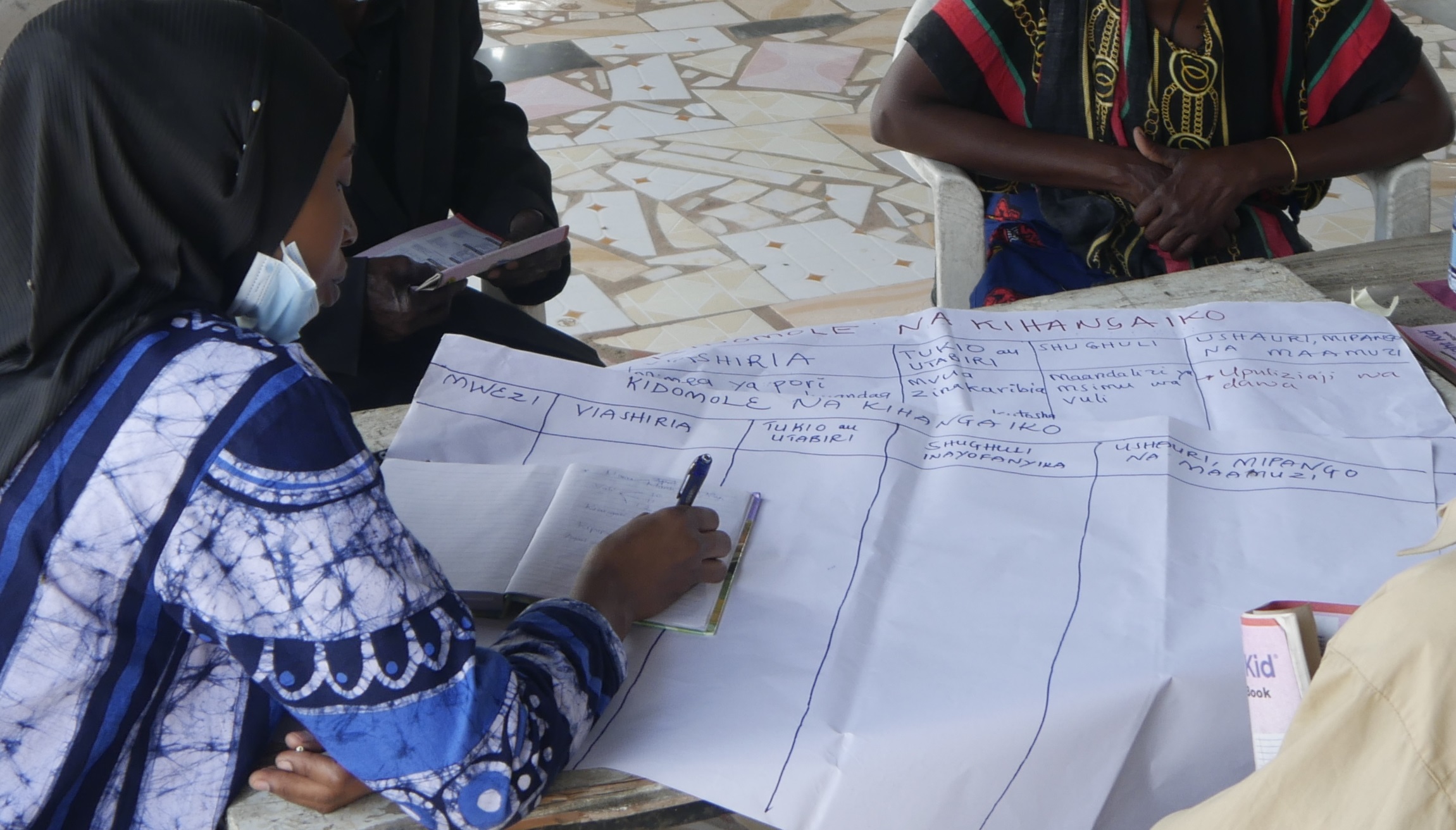
Aligning Climate Resilience, Sustainable Development and Poverty Reduction in Tanzania (Phase II)
Tanzania envisions becoming a middle income country by 2025. In order to realise this ambitious vision it is elementary that Tanzania develops on a sustainable pathway addressing issues such as poverty reduction and building climate resilience. The impact of climate change causing loss and damage in Tanzania is the major threat for a sustainable development of Tanzania. Therefore it is key for Tanzania to mitigate emission and adaptate to climate change in order to reduce the vulnerability of communities and the economy. This project foucs in consquence on strenghening and empowering up-scaling of Renewable Energies (RE) and Climate Services (CS) in Tanzania.
On Renewable Energy:
The role of RE in supporting climate resilient building and realising National Determined Contributions (NDCs), as part of the Paris Agreement, cannot be over emphasized. Despite the fact that, Tanzania has abundant and high-quality RE resources which are well distributed within the country, they are largely unexploited. Still, the energy sector portfolio in Tanzania has remained predominated by traditional biomass and imported expensive fossil fuels. This situation largely leads to deforestation and limits opportunity for socio-economic development and is an additional burden to the country’s economy due to price fluctuations creating an endless vicious cycle of poverty for communities.
Therefore CAN TZ aims to increase advocacy and consultancy on RE in Tanzania, in order to mainstream up-scaling of RE into national energy planning and policies. CAN TZ and civil society organisations will play a critical role in coordinating efforts towards inclusive and participatory development of important national energy strategies. CAN TZ will continue its advocacy on renewable energy to build stakeholders’ capacity while stimulating informed discussion and dialogues at national level through coalitions and technical meetings and dialogues with respective stakeholders.
At the center of the efforts to empower the up-scaling of RE is the formation of a National Coalition (NC) for RE, initiated by CAN TZ. The NC is a coordinated multi-stakeholder forum enabling discussion, engagement that advocates for integration of RE in the national planning and budgeting frameworks.
Learn more on the topic in the CAN TZ Hub on Renewable Energies (RE)
On Climate Services:
In Tanzania, smallholders (farmers, pastoralists, and fishers) employ largest population proportion (about 80%) and contributes about 70% of the total food requirements However, their efforts to achieve better living remain challenged and continue to account for a large proportion of the poor whose livelihoods are vulnerable to impacts of climate change hence reducing their resilience and sustainability. Climate Services (CS) can reduce the vulnerability by providing reliable, timely and useable climate information, that enable smallholder smart decision-making to adapt their livelihood activities (e.g. farming and fishery) to weather and climate phenomena.
In order to increase the dissemination of useable CS in Tanzania CAN TZ is engaged in the implementation of the National Framework for Climate Services. At the center of the efforts to support the implementation of the NFCS is the formation of a National Coalition (NC) for CS, initiated by CAN TZ. Beyond that CAN TZ is establishing the foundation of CS in projects districts Chalinze, Lushoto, Pangani and Bagamoyo. In cooperation with the Tanzanian Meteorology Authority (TMA) CAN TZ conducts Training of Trainers (ToT) , who are training endusers in the use of CS in decision-making for adaptation. The ToTs are trained using the participatory integrated climate services for agriculture and fisheries (PICSAF) approach. Trained end users receive climate information over a SMS system.
A major challenge for usable CS is currently that climate information is not yet available sufficiently downscaled for smallholders. The locally weather and rain patterns, experienced by smallholder, can vary largely from the weather forecast on district level. To downscale climate information the use and integration of indigenous knowledge (IK) into science-based forecasts can be beneficial. Weather forecasting based on local indigenous knowledge orignates from a long tradition of local communities in nature observation and reading indicators such as plant flowering to predict upcoming weather events. In scope of the project CAN TZ work with local indigenous forecasters to gain experience in tailoring and disseminating integrated forecasts. These activities form the advocacy and consulting work on implementation of the NFCS. CAN TZ is working together with the national coalition on CS to mainstream IK-based integrated forecasts into the implementation of the NFCS.
Learn more on the topic in the CAN TZ Hub on Climate Services (CS)
